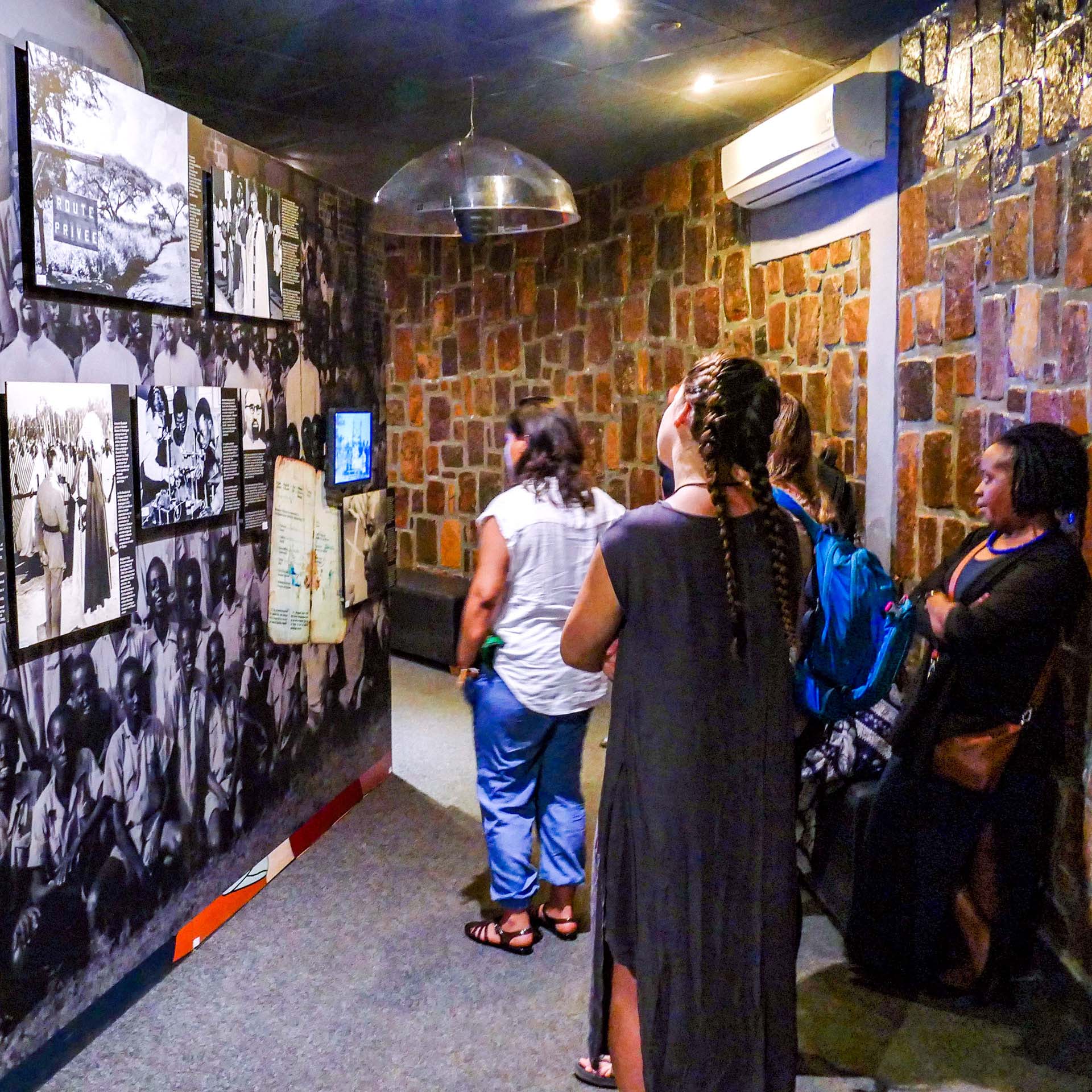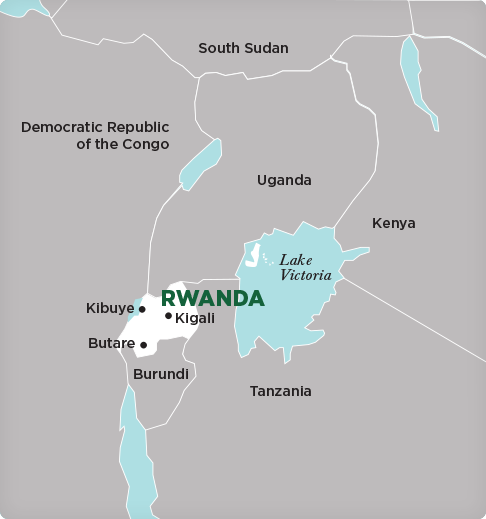Credits
6
Prerequisites
None
Courses taught in
English
Dates
Jun 19 – Jul 31
Program Countries
Rwanda
Program Base
Kigali
Critical Global Issue of Study
Peace & Justice
Development & Inequality

Understand the root causes of genocide while examining measures to foster reconciliation and sustainable development in Rwanda.
6
None
English
Jun 19 – Jul 31
Rwanda
Kigali
Peace & Justice
Development & Inequality
Rwanda offers a unique opportunity to study ethnic conflicts and genocide, from causation to transformation and prevention. In less than 100 days in 1994, more than 1 million people were slaughtered by their neighbors and in some cases their own relatives. Nearly three decades later, the political, economic, and social effects of genocide are still felt, but survivors and perpetrators of the genocide now live side by side.
You’ll visit genocide memorials to learn about the history of conflict in Rwanda and examine post-genocide reconciliation and development efforts underway. You will discover what facilitates and hinders the success of these efforts and consider how the case of Rwanda can inform an understanding of conflict/genocide and peace-building processes elsewhere.
Through site visits with local NGOs, documentary films, homestays, and discussions with local experts, you will analyze peace-building models and consider how ordinary citizens, the government, and international actors keep the past firmly in view while moving forward in Rwanda’s rapidly developing economy.
Although there are no course prerequisites for the program, psychological stability and emotional maturity are essential for students' effective engagement with these difficult subjects.


At the mass burial site of the 250,000 victims of Kigali’s genocide, the Kigali Memorial Centre is a place for reflection and learning. Through exhibitions, videos, clippings, and quotes, the memorial explores the history and origins of genocide, its impacts, the post-genocide period, and ongoing reconciliation and peace effort. Many visitors to the memorial consider this as a life-changing experience.
Ntarama and Nyamata churches were sites of mass executions during the genocide; they are preserved as genocide memorials. Visit and talk with survivors to reflect on the personal stories and impacts of the genocide.
Mayange was the poorest village in Rwanda in 2000 and was identified as the implementation site for the Millenium Development Goals (MDGs). The visit to this village is an opportunity to analyze the sustainability of Rwanda’s achievements in relation to these MDGs and critique the country’s current development policies intended to attract foreign investors.
Kigali Special Economic Zone (SEZ) is an industrial hub created to offer land and incentives to attract businesses and build Rwanda’s manufacturing and knowledge-based economies. This visit demonstrates how Rwanda implements its development policies to promote local as well as foreign economic investments.
As the largest source of foreign exchange earnings in Rwanda, the tourism sector is expected to continue to grow. The visit to Nyungwe National Park allows you to analyze Rwanda’s eco-tourism initiatives for sustainable development while enjoying the biodiversity and spectacular beauty of this mountainous region in southwestern Rwanda.
Please note that SIT will make every effort to maintain its programs as described. To respond to emergent situations, however, SIT may have to change or cancel programs.
Upon successful completion of the program, students will be able to:
The following syllabi are representative of this program. Because courses develop and change over time to take advantage of dynamic learning opportunities, actual course content will vary from term to term.
The syllabi can be useful for students, faculty, and study abroad offices in assessing credit transfer. Read more about credit transfer.
Peace and Conflict Seminar – syllabus
(PEAC3000 / 6 credits)
Rwanda is depicted as a model of rapid growth and success in many areas including gender equality, youth engagement, poverty reduction, information technology, and ecotourism. However, it is impossible to understand these current success stories ithout studying the country’s complex history, which led to the 1994 genocide and the civil war. The slaughter of more than 1million people—more than a tenth of the population—resulted in a total collapse. The genocide and the civil war not only took people’s lives but also destroyed whatever infrastructure the country had at that time. In the aftermath of the genocide, sewing this war-torn nation back together seemed like an insurmountable task. For that reason, Rwanda provides a unique opportunity to critically examine ethnic conflicts and genocide, especially in the African context. Students examine the causes of the genocide using different theoretical lenses starting with a thorough analysis of the complex history of Rwanda to understand how conflicts emerged and escalated, until they reached the climax point in 1994. Students evaluate the importance of geopolitics and the role of the international community in the entire process of genocide. They debate how ethnic identify constructions and inequality were central in that process.
Post-genocide reconstruction and transformation is also studied. Students get an opportunity to work with local experts, scholars, and peace-building practitioners to learn about practices of transitional justice, conflict transformation, peacebuilding, and development. This course provides an opportunity to interrogate frameworks and the assumptions that have shaped the ways popular media and mainstream academy have portrayed and explained the genocide in Rwanda and its aftermath.



SIT Study Abroad is committed to ensuring that international education is within reach for all students. We believe in the transformative power of immersive, intercultural experiences and are dedicated to supporting students in their educational journey.
See Full Breakdown
A critical step in preparing for your study abroad program is planning how you will maintain your health and wellbeing. Please review the following information carefully and contact [email protected] with any questions or concerns.
View Information